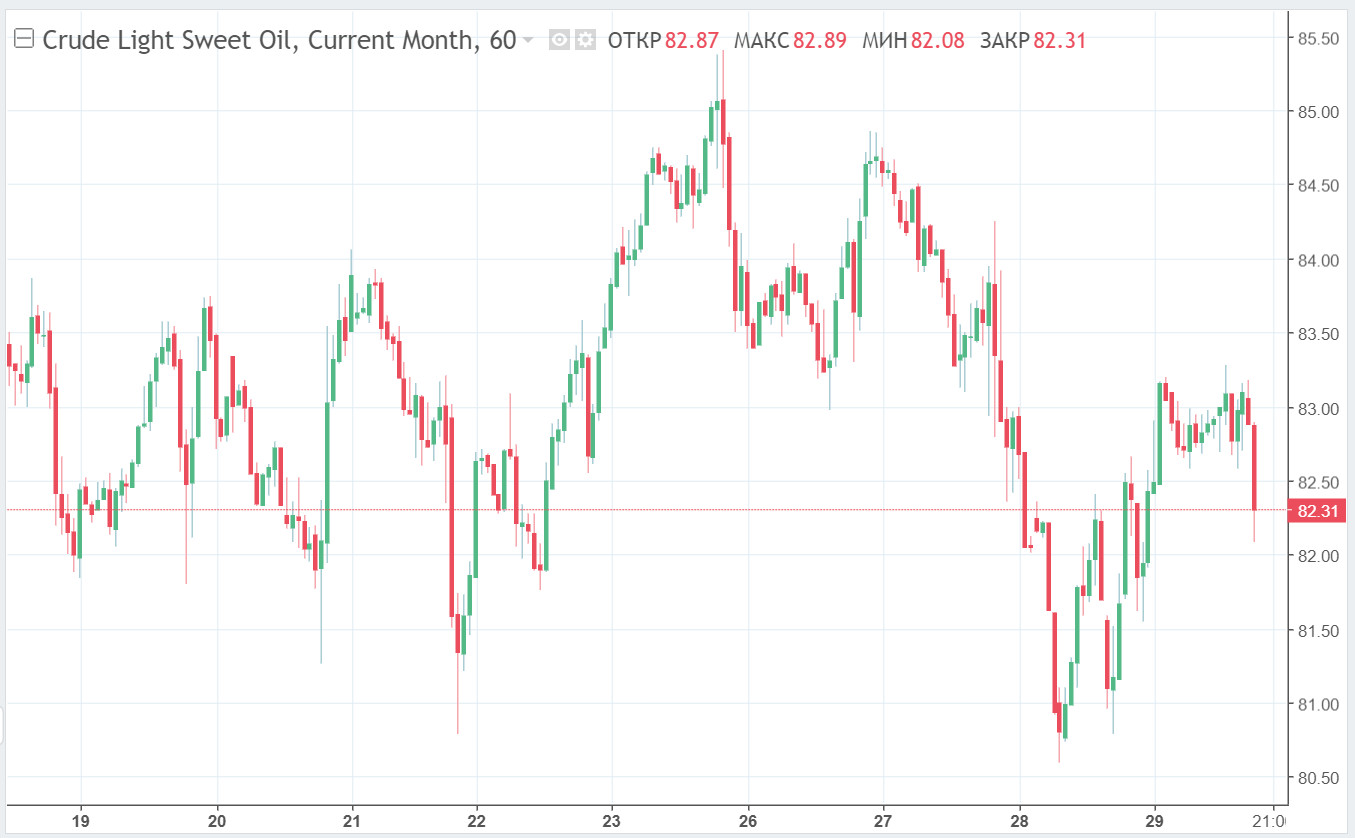
Oil prices were under pressure in the first half of Thursday. The sell-off began immediately after the release of weak data from the EIA. Brent dropped to $82.3 per barrel, but by the evening the benchmark managed to recover most of its losses.
Public statements by Iranian officials that negotiations on a nuclear program with the US are likely to continue may have triggered weakness in oil prices on Thursday. The exact date will be announced next week, but it is already known to be the end of November. If the deal is successful, Iran's oil and gas sanctions could be lifted and an additional 1 million bpd of crude could flood into the market. It raises concerns, however, these are just assumptions, because no one knows what the current state of Iran's production capacity is. There is a low probability that Iran will take less than a month to restore production. Besides, the Iranian authorities have hinted that the resumption of negotiations with the US is impossible until the latter unfreeze Iranian assets abroad in the amount of $10 billion. Therefore, although the market takes into account the expected growth of production, it is not expected to pose any strong threat.
Iran's economy is suffering greatly because of US sanctions. However, the Iranian government is in no hurry to agree with the conditions provided by the US but is desperately trying to demonstrate its ability to resist the imposed restrictions and defend its interests. The Iranian authorities are also not ruling out the fact that any improvement in relations with the US government could last for a short time. Worries about this are increasing as the US presidential election approaches in 2024 and the Republicans may win it. Iran has no reason to be confident that the new authorities in the US will not impose new sanctions against them. However, the current White House administration also cannot guarantee this.
The OPEC+ countries received another argument in favor of preserving the status quo at the upcoming meeting and refraining from a more forced production increase. On Thursday, the head of Algeria's energy ministry announced that the committee did not need to increase production in December over the previously planned 0.4 million bpd. The main reason for this tactic is the exorbitant risks and continuing uncertainty. Although Algeria is not the most influential country in OPEC, its opinion on this issue nevertheless reflects the position of the majority of the alliance members.
Another significant event for the oil market: the new estimate of the OPEC+ technical committee shows that world commercial hydrocarbon stocks in the 6th quarter of this year will decrease by 1.1 million bpd, although previously it was expected to drop by 0.67 million bpd.
The Brent crude oil futures, by the time this article was prepared, slightly retreated from the levels of yesterday's trading session results. The benchmark oil fell by 0.36% to $83.21 per barrel in the afternoon hours, while WTI fell by 0.68% to $82.09 per barrel.
Market players are eagerly awaiting news: the Euroregion GDP figures for Q3 this year, the monthly oil production report, and the September US personal income and spending data. Oil prices are unlikely to rebound after a mid-week decline mainly due to a lack of strong upside factors and are very likely to close this week's trading session at around $83 per barrel.

 English
English 
 Русский
Русский Bahasa Indonesia
Bahasa Indonesia Bahasa Malay
Bahasa Malay ไทย
ไทย Español
Español Deutsch
Deutsch Български
Български Français
Français Tiếng Việt
Tiếng Việt 中文
中文 বাংলা
বাংলা हिन्दी
हिन्दी Čeština
Čeština Українська
Українська Română
Română

